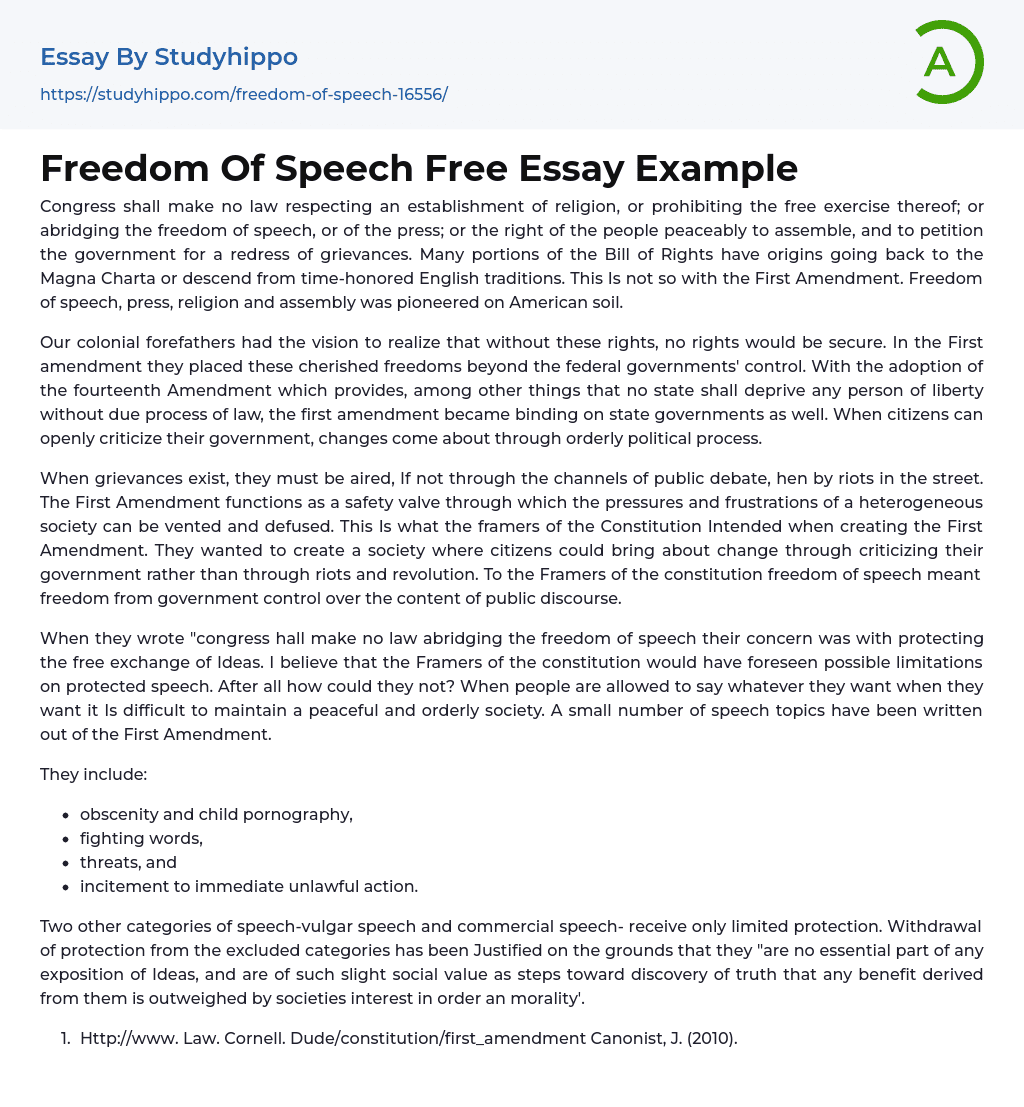The First Amendment of the United States prohibits Congress from passing laws that either establish or limit religion, hinder free speech, press, assembly, and the right to petition the government for grievances. While drawing inspiration from English traditions and the Magna Carta, various aspects of the Bill of Rights were specifically crafted in America to serve as catalysts for freedoms such as speech, press, religion, and assembly.
Our colonial ancestors understood that the security of fundamental rights relied on the wisdom of inclusion. The First Amendment protected these cherished freedoms from federal government interference, while the fourteenth Amendment extended them to state governments. This amendment ensures that no state can deprive individuals of liberty without proper legal procedures. As a result, when citizens openly express their criticisms of the government, positive and meaningful changes can be a
...chieved through a structured political process.
The Framers of the Constitution had originally planned to establish a society where individuals could freely voice their complaints through either public debate or street riots. The First Amendment was created as a way to alleviate and address the tensions and discontent within a diverse society. Their objective was to create a system in which citizens could bring about change by criticizing their government instead of resorting to riots and rebellions. For them, freedom of speech meant being free from government interference in public discussions.
The provision in the constitution that states "Congress shall make no law abridging the freedom of speech" was created to protect the free exchange of ideas. The framers of the constitution likely expected limitations on protected speech, as unregulated expression could cause societal chaos. Consequently, certain topics
of speech are not afforded protection under the First Amendment.
These items encompass:
- obscenity and child pornography,
- fighting words,
- threats, and
- incitement to immediate unlawful action.
Two additional types of speech, vulgar speech and commercial speech, are granted only partial protection. The reasoning behind removing protection from these categories is that they "do not form an essential part of expressing ideas and have minimal social value in the search for truth, with any potential benefit being outweighed by society's interest in maintaining order and morality."
- Http://www. Law. Cornell. Dude/constitution/first_amendment Canonist, J. (2010).
- Constitutional law. (twelfth De. ). New Providence, NJ. : Matthew Bender & company, Inc.
- Euthanasia essays
- Assisted Suicide essays
- Censorship essays
- Gun Control essays
- Empowerment essays
- Civil Rights essays
- Capital Punishment essays
- Death Penalty essays
- Human Trafficking essays
- Sex Trafficking essays
- Gay Marriage essays
- Affirmative Action essays
- Child Labour essays
- Privacy essays
- Speech essays
- Child Protection essays
- Corporal Punishment essays
- Police Brutality essays
- Gun essays
- Death Penalty Pros And Cons essays
- Is The Death Penalty Effective essays
- The victim essays
- Public Speaking essays
- Freedom Of Speech essays
- Free Speech essays
- Persuasive Speech essays
- Gettysburg Address essays
- Informative Speech essays
- Business Law essays
- Contract essays
- Consumer Protection essays
- Property essays
- Ownership essays
- Agreement essays
- Common Law essays
- Contract Law essays
- Justice essays
- Security essays
- Tort Law essays
- United States Constitution essays
- Crime essays
- Lawsuit essays
- Treaty essays
- Family Law essays
- Marijuana Legalization essays
- Constitution essays
- War on Drugs essays
- Court essays
- Jury essays
- Police essays




